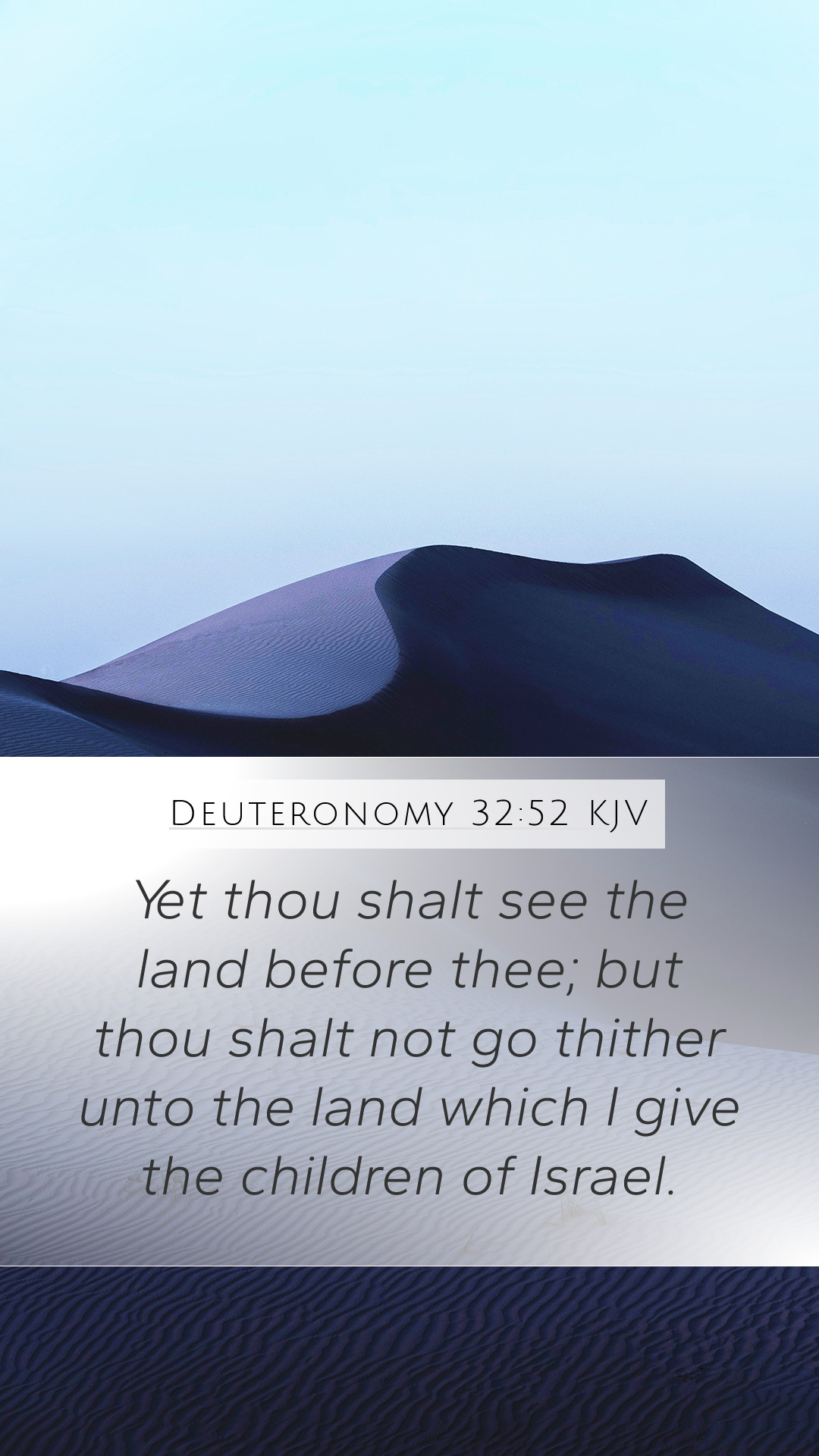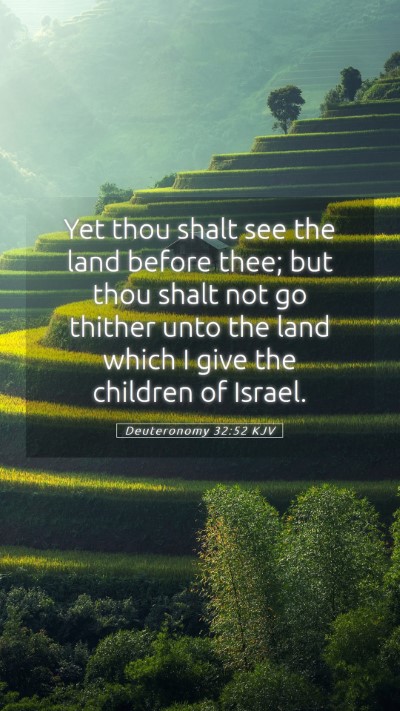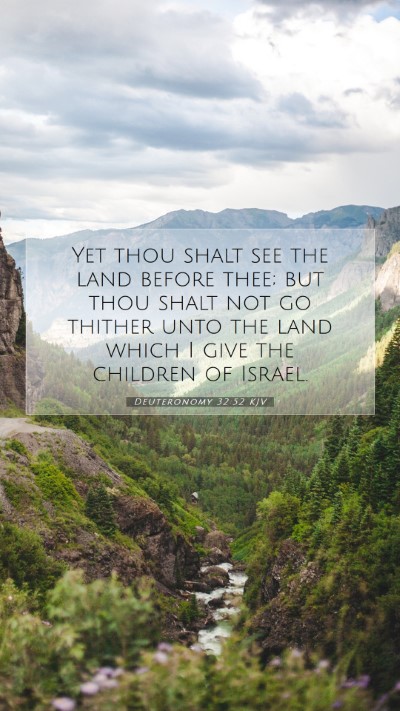Understanding Deuteronomy 32:52
Bible Verse: Deuteronomy 32:52
Verse Text: "Yet thou shalt see the land before thee; but thou shalt not go thither unto the land which I give the children of Israel." (KJV)
Bible Verse Meaning and Interpretation
Deuteronomy 32:52 is a poignant verse that resonates with themes of consequence, divine justice, and the fulfillment of promises. In this scripture, Moses speaks to the reality of his impending death and the consequences of his actions, emphasizing that while he may see the Promised Land, he will not enter it due to his earlier disobedience.
Insights from Public Domain Commentaries
Matthew Henry's Commentary
Matthew Henry reflects on Moses's unique position as a leader who had steadfastly guided the Israelites through their trials. However, he notes that even great leaders are not exempt from God's judgment. This verse serves as a reminder that personal actions, particularly those of leaders, have profound consequences. God's punishment, in this case, was not only just but illustrative of the holiness of God and His standards for obedience.
Albert Barnes' Notes
Albert Barnes emphasizes the duality of vision and exclusion. He highlights Moses's view of the land as a metaphor for hope and longing, but also as a reminder of lost opportunity resulting from disobedience. Barnes points out that Moses's experience is an admonition to future generations about the importance of following God's commandments and the weight of responsibility borne by leaders over their communities.
Adam Clarke's Commentary
Adam Clarke discusses the implications of Moses's inability to enter the land. He notes that the view of the Promised Land could symbolize the visionary aspect of faith, representing what is sought after in God's covenant. Clarke argues that despite the tragedy of Moses's exclusion, the promise of the land is ultimately fulfilled in the lives of the Israelites, pointing towards God's unwavering faithfulness to His people.
Broader Themes
This verse serves not only as a historical account but also as a lasting lesson in biblical exegesis regarding leadership, faithfulness, and accountability. The significance lies in understanding that:
- Consequences of Sin: The repercussions of actions are real, even for God's chosen servants.
- Vision vs. Reality: The ability to see what God has promised does not guarantee possession.
- Hope in God's Promises: While leaders may fail, God's promises to His people remain intact.
Practical Applications
For contemporary readers, Deuteronomy 32:52 offers vital insights that can be applied daily:
- Leadership Integrity: Leaders are called to an elevated standard of behavior, encouraging accountability and integrity.
- Obeying Divine Instructions: It is essential to live in accordance with God's commands, understanding that each action has a ripple effect.
- Embracing God’s Plan: Individuals can learn to trust in God’s broader plan, even in personal disappointments or delays.
Cross References
This verse relates closely to several other scriptural passages that elaborate on similar themes:
- Numbers 20:12: God punishes Moses for his disobedience at Meribah.
- Hebrews 3:16-19: Lessons on the consequences of disbelief and disobedience.
- Joshua 1:2: Joshua is appointed to lead the Israelites into the Promised Land after Moses' death.
Conclusion
In summary, Deuteronomy 32:52 serves as an instructional piece regarding the grave consequences of disobedience and the profound nature of God's covenant with His people. The verse acts as a source of reflection for individuals engaged in Bible study insights, understanding Scripture, and Bible verse explanations. Through a deep dive into the biblical text, whether in bible study groups or online Bible study, one can glean valuable lessons and apply them to daily living by aligning oneself with God’s will.


